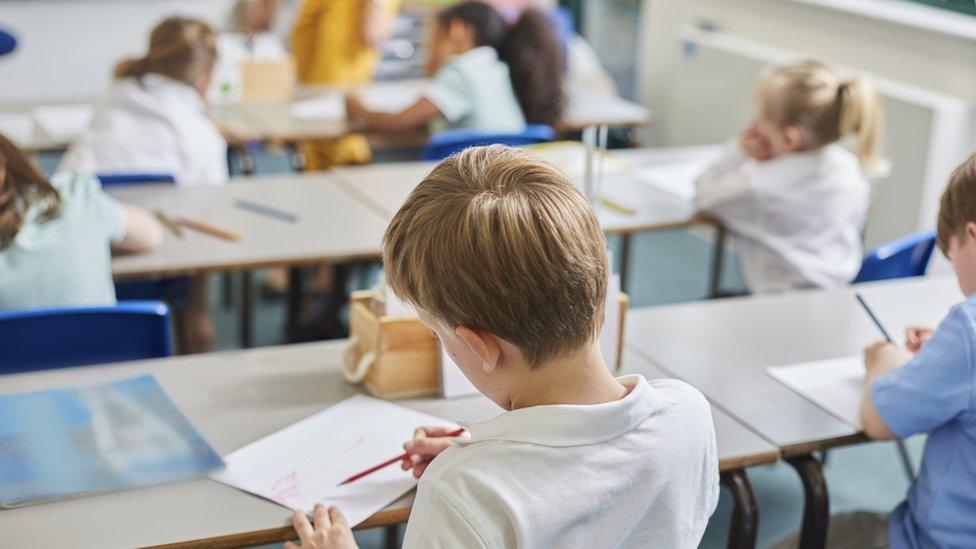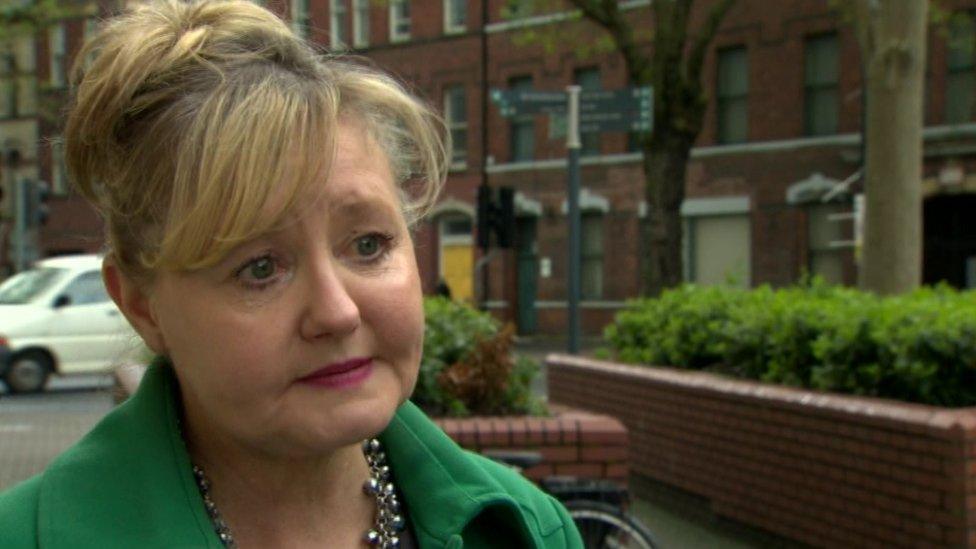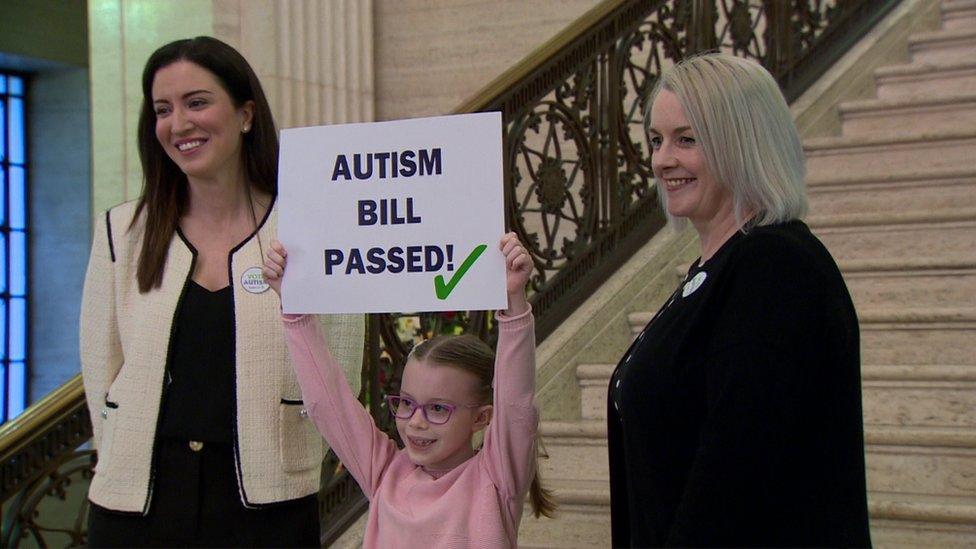Autism: Proportion of NI pupils with diagnosis quadruples
- Published

Boys were three times more likely to have a diagnosis of autism than girls
The proportion of schoolchildren with an autism diagnosis in Northern Ireland has quadrupled in just over a decade, according to figures just published by the Department of Health.
Shirelle Stewart from the National Autistic Society NI said many schools were "already struggling to provide the support that autistic children need".
More than 14,000 children between four and 16 have an autism diagnosis.
That is an estimated 4.7% of the school-aged population.
That is up from about 1.2% of pupils in 2009.
While the Department of Health (DoH) has cautioned against direct comparison between years due to changes in the ways autism data has been collected, they said an increasing number of children with all ages were being diagnosed with autism or Asperger's syndrome.
Boys were three times more likely to have a diagnosis of autism than girls.

Shirelle Stewart of the National Autistic Society said the year-on-year increase in the prevalence figures poses a huge problem
The health trust area with the highest prevalence of autism in school-aged children was the Belfast Trust where about one in every 14 children had a diagnosis.
The DoH statistics also show that about one in every 17 pupils in the first years of post-primary school (years eight and nine) is autistic.
Rising steadily
According to the DoH's definition, autism is a developmental disability which influences how a person communicates with and relates to other people and how they make sense of the world.
It is a "spectrum condition" as it affects people in different ways and to varying degrees.
Asperger's syndrome is a similar condition, but children diagnosed with it can have some different language and learning disabilities.
The proportion of school-aged children diagnosed with either condition has been rising steadily in recent years, but the prevalence of autism is over a third higher in the most deprived areas.
Many children with autism attend mainstream schools and some go to special schools, while more than half (58%) have a statement of Special Educational Needs (SEN).
A statement is a legal document setting out the child's needs and how these should be met in school by the Education Authority (EA).
Ms Stewart said the year-on-year increase in the prevalence figures "poses a huge problem for an education system already struggling to provide the support that autistic children need".
"There are a myriad of issues facing autistic children and young people at present which is compromising their rights to an inclusive education," she said.
"At every level of the system, from identification and assessment to educational provision and in the transition to adult life, parents and young people face significant barriers in accessing the right support at the right time."
A bill to strengthen support services for young people and adults with autism in Northern Ireland was recently passed by Stormont assembly members.

Autism legislation received support from all of the parties at Stormont in March
But Ms Stewart said more needed to be done for children in schools.
"At classroom level, there is no requirement for teachers or classroom assistants to undertake autism training - something the National Autistic Society NI has been calling for since 2012.
"It is time for the government and Education Authority to take action to ensure every autistic child and young person gets the education they are entitled to."
It is expected to take six months and follows a number of critical reports into failings in the EA's support for some pupils with SEN.
Related topics
- Published25 February 2021
